
What is a Class 1 Felony in Arizona?
 Class 1 felonies are the most serious offenses in Arizona, coming with a minimum of 10 years in prison. First-degree murder is one of the only types of offenses that can come with capital punishment.
Class 1 felonies are the most serious offenses in Arizona, coming with a minimum of 10 years in prison. First-degree murder is one of the only types of offenses that can come with capital punishment.
If you’ve been accused or involved in a class 1 felony, it’s important that you understand the basics and contact a qualified attorney right away. Law enforcement and prosecution take class 1 felonies very seriously, allocating significant resources to gather evidence and try the case.
What is a Class 1 Felony in Arizona?
A class 1 felony is a specific class of crime in Arizona. Arizona law breaks down felonies into six different classes. Class 1 felonies are the most severe. All classes of felonies will generally come with jail time, with class 6 having a presumptive jail sentence of 1 year.
Types of Class 1 Felonies
 There are only two crimes that are categorized as a class 1 felony: first-degree and second-degree murder. First-degree murder usually has a premeditation component, which means the defendant thought out the crime before committing it. Second-degree murder generally lacks the premeditation component.
There are only two crimes that are categorized as a class 1 felony: first-degree and second-degree murder. First-degree murder usually has a premeditation component, which means the defendant thought out the crime before committing it. Second-degree murder generally lacks the premeditation component.
Arizona also has a felony murder rule. If a person kills another as a result of committing a specific crime listed in the statute, they can be found guilty of first-degree murder, even if there was no premeditation.
Examples listed in the statute include kidnapping, robbery, child molestation, sexual assault, arson, or fleeing from law enforcement.
Punishments for Class 1 Felonies
Punishment for first-degree murder can include life imprisonment and the death penalty. Life imprisonment doesn’t always mean serving an entire life sentence. A life sentence can come with the possibility of release after 25 years of imprisonment if the victim is 15 years or older or 35 years if the victim is under 15. If the ruling states imprisonment for the defendant’s natural life, there is no possibility of an early release.
Second-degree murder sentencing can vary based on the crime. The minimum sentence is 10 years, with a presumptive sentence of 16 years for first-time offenders. The maximum sentence for first-time offenders is 25 years. If you’ve already been convicted of a second-degree murder charge or a class 2 or 3 felony, the sentencing range increases to a minimum of 15 years, a presumptive sentence of 25 years, and a maximum sentence of 29 years.
Statute of Limitations for Class 1 Felonies
 Most crimes come with a statute of limitations, which is the timeframe a plaintiff has to bring a case against you. However, class 1 felonies are unique in that they don’t have a statute of limitations. Prosecutors can bring charges at any point, including 30 years after the fact.
Most crimes come with a statute of limitations, which is the timeframe a plaintiff has to bring a case against you. However, class 1 felonies are unique in that they don’t have a statute of limitations. Prosecutors can bring charges at any point, including 30 years after the fact.
Finding a Criminal Defense Attorney for Class 1 Felonies
If you’ve been charged with a class 1 felony in Arizona, you need to contact an attorney right away. The sentencing for class 1 felonies can be severe, with life imprisonment. Reach out to our team at The Law Office of Zayed Al-Sayyed today to schedule your free consultation.

How are Crimes Classified in Arizona?
 The Arizona Criminal Code ranges from minor traffic violations to severe charges, like premeditated murder. All crimes carry the potential for consequences, like license revocation, probation, jail time, and even capital punishment.
The Arizona Criminal Code ranges from minor traffic violations to severe charges, like premeditated murder. All crimes carry the potential for consequences, like license revocation, probation, jail time, and even capital punishment.
If the police stop and question you about a crime, or you’ve been accused of a crime in Arizona, you need to consult with an attorney about your rights and how to proceed. The right attorney will be able to evaluate the facts of the case and suggest the best course of action to secure a favorable outcome.
Even if you are working with a criminal defense attorney, it’s still important that you understand how crimes are classified in Arizona. In this article, we’ll cover the differences between the three types of crimes: felonies, misdemeanors, and minor charges.
How are Crimes Classified in Arizona?
Crimes fall into three categories in Arizona, ranging from severe to more common. Even if you are convicted of a minor crime, there can still be long-term consequences. Let’s explore each of these categories in more detail.
Felony Offense
 Felony offenses are the most severe crimes. In Arizona, all felonies carry a presumptive sentence. In some cases, defendants can request a shorter minimum or mitigated sentence. Common types of felonies under Arizona law include murder, rape, arson, burglary, kidnapping, and arson. The six classes of felonies in Arizona include:
Felony offenses are the most severe crimes. In Arizona, all felonies carry a presumptive sentence. In some cases, defendants can request a shorter minimum or mitigated sentence. Common types of felonies under Arizona law include murder, rape, arson, burglary, kidnapping, and arson. The six classes of felonies in Arizona include:
- Class 1 – Penalties vary based on the case
- Class 2 – Presumptive sentence of 5 years
- Class 3 – Presumptive sentence of 3.5 years
- Class 4 – Presumptive sentence of 2.5 years
- Class 5 – Presumptive sentence of 1.5 years
- Class 6 – Presumptive sentence of 1 year
The long-term effects of a felony conviction might include the requirement to register on certain criminal registries, immigration consequences, ineligibility for housing and public benefits, loss of the right to serve as a juror, loss of the right to vote, and restrictions on possession of weapons.
Misdemeanor Offense
 Misdemeanors are less severe than felonies, with the maximum possible punishment being less than six months of jail time. Arizona has three classes of misdemeanor offenses:
Misdemeanors are less severe than felonies, with the maximum possible punishment being less than six months of jail time. Arizona has three classes of misdemeanor offenses:
- Class 1 – Maximum imprisonment of 6 months
- Class 2 – Maximum imprisonment of 4 months
- Class 3 – Maximum imprisonment of 30 days
Misdemeanors are less violent crimes, like criminal trespassing, speeding, disorderly conduct, some shoplifting violations, and loitering. Misdemeanor violations have simpler court proceedings, with no grand jury. However, there can still be long-term consequences of a misdemeanor on your criminal record.
Arizona Criminal Defense Attorney
If you are facing any type of criminal charge, regardless of the severity, contact a qualified Arizona attorney right away. You want to ensure that the long-term impacts of your case are minimized. Reach out to a team member at The Law Office of Zayed Al-Sayyed to schedule your free consultation.

What is Considered a Violent Crime in Arizona?
 Violent crimes in Arizona are serious offenses, coming with severe consequences, like a life sentence, even for first-time offenders. When you think of violent crimes, murder and manslaughter might come to mind. However, there are other charges, like kidnapping and domestic violence, that are also considered violent crimes in Arizona.
Violent crimes in Arizona are serious offenses, coming with severe consequences, like a life sentence, even for first-time offenders. When you think of violent crimes, murder and manslaughter might come to mind. However, there are other charges, like kidnapping and domestic violence, that are also considered violent crimes in Arizona.
In this article, we’ll cover the basics of violent crimes, including the common types. Remember, if you are involved in a violent crime case, contact a qualified criminal attorney right away. You don’t want to implicate yourself on charges on accident.
Violent Crimes are More Aggressively Pursued by Police
By definition, a violent crime includes any criminal act that results in death or physical injury or uses a deadly weapon or dangerous weapon. Given the severity, police and prosecution often dedicate more time to pursuing alleged offenders.
 The police will carefully investigate the crime scene and document all evidence that traces back to the perpetrator. Witnesses will be thoroughly interviewed, and the prosecution will begin putting together a picture of what happened.
The police will carefully investigate the crime scene and document all evidence that traces back to the perpetrator. Witnesses will be thoroughly interviewed, and the prosecution will begin putting together a picture of what happened.
If you are questioned by police relating to a violent crime, remain silent. The police are trained in interview tactics, meaning they might extract a confession even if you didn’t commit the crime. Contact an experienced criminal defense attorney before you talk to the police.
Types of Violent Crime in Arizona
There are many different types of violent crime in Arizona, including:
Armed Robbery
Armed robbery involves taking someone’s property using a deadly weapon or dangerous instrument. Even if you aren’t using a real weapon, like a toy gun, you can still be charged with armed robbery. Armed robbery is a class 2 felony in Arizona.
 Domestic Violence
Domestic Violence
Contrary to what you might think, domestic violence is not a crime in itself. Domestic violence is a designation placed on a crime when a proven relationship between two parties is broken. This goes beyond the relationship of a married couple and can include exes, family members, roommates, and crimes involving children. Violent crimes that prove that the domestic relationship has been broken can come with more severe punishments.
Aggravated Assault
Aggravated assault takes misdemeanor assault to the felony level. Arizona law is broad in its definition of aggravated assault, including the intention to commit a serious assault and when an adult commits a crime against a minor under the age of 15. Aggravated assault can also occur against certain professions, like police officers and nurses.
Manslaughter
Manslaughter is a step down from murder that involves the death of a person without the intent to kill. For example, driving recklessly and hitting a pedestrian. The intention wasn’t specifically to hit and kill the pedestrian, resulting in manslaughter. Manslaughter is a serious charge and can come with severe consequences based on the specifics of the situation.
Murder
Murder is the most common type of violent crime, resulting in the death of another individual. Murder is generally intentional, with planning ahead, known as premeditation, or by engaging in actions that you know will result in the death of another. Arizona does have a death penalty in place, meaning certain crimes may be eligible for capital punishment.
Violent Crimes Criminal Attorney
When you are involved in any type of violent crime charge, you need to have an experienced criminal attorney on your side. Reach out to a team member at The Law Office of Zayed Al-Sayyed today to schedule your free consultation.

How is Fault Determined in a Car Accident in Arizona?
 Fault is determined in a car accident in Arizona based on the nature of the crash, witness testimonials, and evidence documented in police reports. Since Arizona is an at-fault state, the party found liable will generally be responsible for covering damages.
Fault is determined in a car accident in Arizona based on the nature of the crash, witness testimonials, and evidence documented in police reports. Since Arizona is an at-fault state, the party found liable will generally be responsible for covering damages.
However, there are gray areas when it comes to determining fault. This makes it important to understand the specifics of your case and Arizona’s pure comparative rules. Let’s discuss these items in more detail.
How Fault is Determined in a Car Accident in Arizona
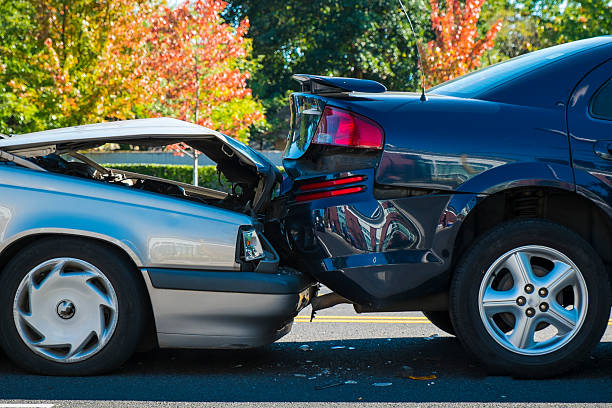 Fault is determined in a car accident in Arizona based on who initiated the accident. For example, a car that cuts into oncoming traffic and causes an accident might be found at fault. However, Arizona Revised Statutes § 12-2505 outlines comparative fault rules, which apply to auto accidents, personal injury, and property claims.
Fault is determined in a car accident in Arizona based on who initiated the accident. For example, a car that cuts into oncoming traffic and causes an accident might be found at fault. However, Arizona Revised Statutes § 12-2505 outlines comparative fault rules, which apply to auto accidents, personal injury, and property claims.
This law states that an accident can be caused by multiple parties. In these situations, fault is divided up based on available evidence. Using our above example, let’s say that the driver who cut into traffic was met with abrupt brake lights. This might lead to fault apportioned to the other driver.
Pure comparative fault rules in Arizona allow drivers to be up to 99% responsible for an accident and still be able to recover damages from the party that is 1% responsible. Arizona is unique in that many states prohibit parties from seeking damages if they are more than 50% at fault.
Recovering Damages
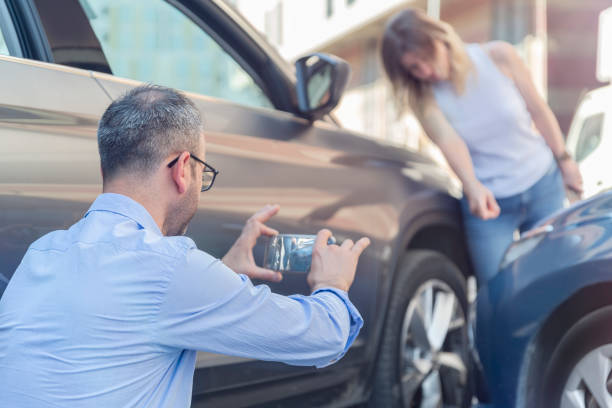 If you’ve been involved in an Arizona car accident where another party is at fault, you have a few options. First, you can file a third-party claim against the at-fault driver’s insurance company. Another option is to file a claim with your insurance provider, depending on your coverage. This is a common option if you are entirely or partially at fault in an accident.
If you’ve been involved in an Arizona car accident where another party is at fault, you have a few options. First, you can file a third-party claim against the at-fault driver’s insurance company. Another option is to file a claim with your insurance provider, depending on your coverage. This is a common option if you are entirely or partially at fault in an accident.
Moreover, parties that are not at fault in a car accident can file a personal injury lawsuit to pursue damages in court. This can help you secure insurance funds from the at-fault driver, as the Arizona Department of Transportation requires insurance for vehicles operating on the road.
Damages can be recovered for a variety of reasons, such as medical bills, future medical care, lost wages, pain and suffering, mental anguish, and out-of-pocket expenses related to the accident. The severity of your injuries and your comparative fault will determine how much compensation you can receive.
For example, if your claim is worth $100,000 and you are found 50% at fault for the accident, your total claim value might be reduced to $50,000.
Finding a Car Accident Lawyer in Arizona
 Arizona car accident lawyers are indispensable when it comes to pursuing damages in court. Not only can the right lawyer evaluate the success potential of your claim, but they can also work with other lawyers and insurance companies on your behalf. Reach out today to schedule your free consultation with our team at theZlawyer today.
Arizona car accident lawyers are indispensable when it comes to pursuing damages in court. Not only can the right lawyer evaluate the success potential of your claim, but they can also work with other lawyers and insurance companies on your behalf. Reach out today to schedule your free consultation with our team at theZlawyer today.

Self-Defense in Arizona
 Physical fights and violent crimes are not uncommon in America. While there are self-defense laws in place in Arizona, it’s important you understand the legal limits to avoid an unforeseen lawsuit.
Physical fights and violent crimes are not uncommon in America. While there are self-defense laws in place in Arizona, it’s important you understand the legal limits to avoid an unforeseen lawsuit.
Arizona has “stand your ground” laws that are designed to provide citizens with the legal ability to protect themselves and their property from harm. Venturing outside of what’s covered in Arizona’s self-defense laws can land you in a tricky situation.
In this article, we’ll cover everything you need to know about Arizona self-defense laws, including notable exceptions and a real-life example.
Arizona Self-Defense Laws
A.R.S 13-404 explains that physical force is allowable if the individual believes, “that physical force is immediately necessary to protect himself against the other’s use or attempted use of unlawful physical force.”
Furthermore, A.R.S 13-405 outlines deadly force laws. This statute says that individuals can use deadly force if a retreat from the situation isn’t possible. For example, a robber cornering you in your home. Running might not be an option and your only defense may be deadly force.
The use of physical and deadly force is evaluated on a case-by-case basis. A good rule of thumb is to avoid the use of deadly force if your family isn’t in immediate danger and has the ability to retreat from the situation. Using improper deadly force can lead to criminal charges, restitution payments, and a civil trial.
Exceptions to Self-Defense in Arizona
With anything, there are exceptions. Verbal altercations where there is no physical threat do not give individuals the ability to use self-defense. In addition, self-defense is not allowed when an individual is being arrested by a police officer.
Arizona statutes also prohibit the application of self-defense laws when an individual provokes another person into using physical force and does not attempt to retreat.
An Example of Arizona Self-Defense Laws
 There are many examples of Arizona self-defense laws in real-life situations, but this is one of the most notable ones. In November 2011, David Appleton was followed by Tom Pearson as a result of a road rage incident. David Appleton pulled over, removed his handgun from the glove compartment, and placed it on the passenger seat.
There are many examples of Arizona self-defense laws in real-life situations, but this is one of the most notable ones. In November 2011, David Appleton was followed by Tom Pearson as a result of a road rage incident. David Appleton pulled over, removed his handgun from the glove compartment, and placed it on the passenger seat.
According to David Appleton, Tom Pearson approached his vehicle and began choking him through the driver’s side window. Before losing consciousness, David Appleton fatally shot Tom Pearson.
The result? David Appleton was originally charged with second-degree murder. Nearly 15 months after the initial incident, a grand jury decision freed David Appleton under Arizona self-defense laws.
Finding a Self-Defense Lawyer
Regardless of the severity of your self-defense situation, it’s important to partner with a qualified self-defense lawyer. Wrongful convictions, restitution, and trials are all potential outcomes if you aren’t properly navigating Arizona self-defense laws in the courtroom.
Our team at theZlawyer defends your self-defense rights. If you felt like you had no other option but to use physical or deadly force to protect your family, reach out to one of our team members today.
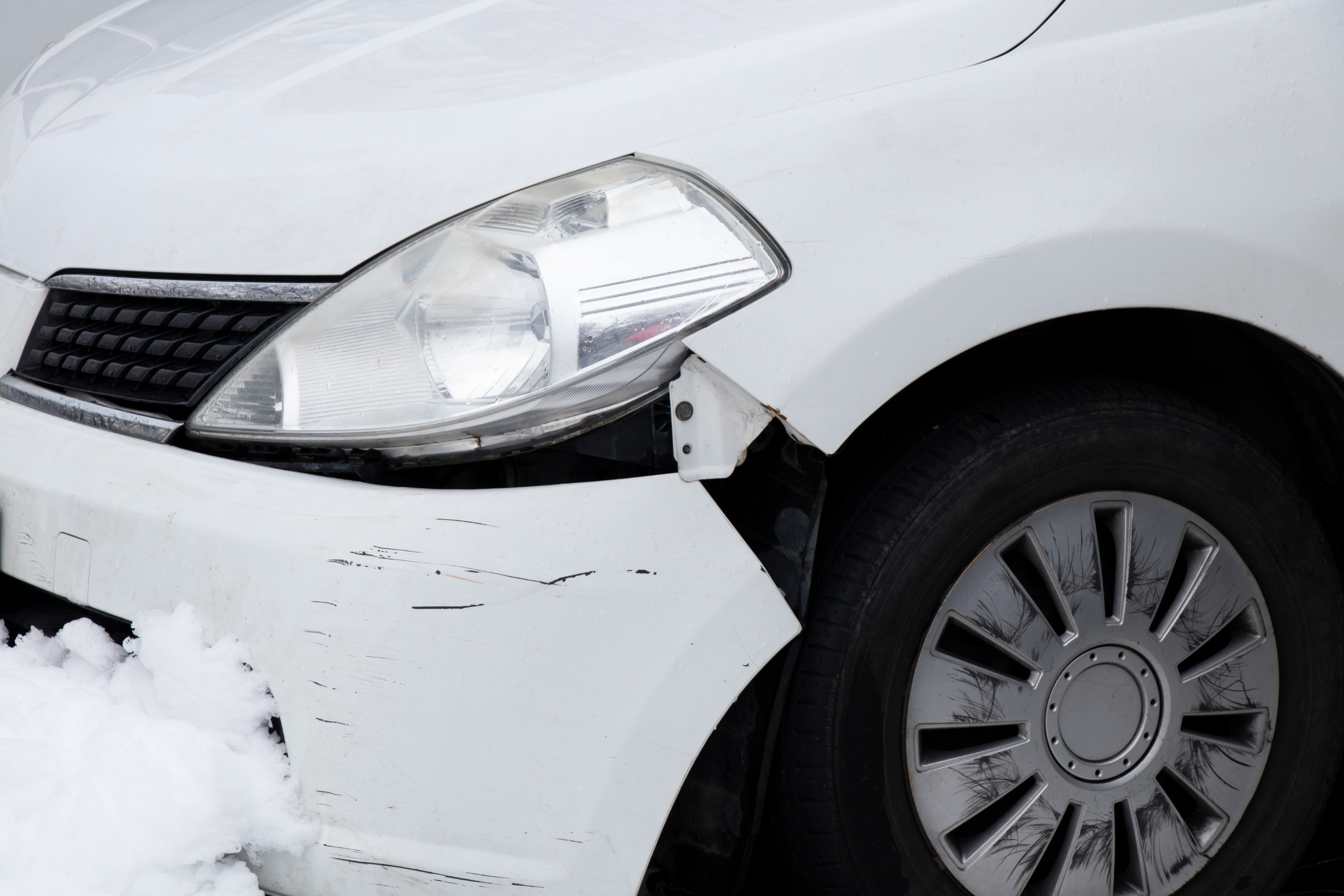
What To Do After a Minor Car Accident in Arizona?
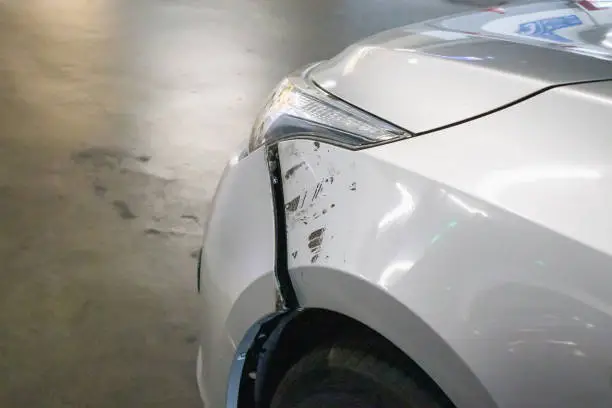 Millions of auto accidents happen each year, from small fender benders to total losses. Unfortunately, auto accidents are no longer a “what if” situation but rather a “when.” Whether you were recently in a fender bender or are simply taking a proactive approach, it’s important you understand what to do after a minor car accident in Arizona.
Millions of auto accidents happen each year, from small fender benders to total losses. Unfortunately, auto accidents are no longer a “what if” situation but rather a “when.” Whether you were recently in a fender bender or are simply taking a proactive approach, it’s important you understand what to do after a minor car accident in Arizona.
What Does Arizona Law Require?
Arizona law requires drivers to pull over immediately following an accident. Although this might seem self-explanatory, fleeing the scene is a major crime, even if the accident was minor. Drivers should pull over to a spot with the least amount of traffic, such as a parking lot.
Next, Arizona law requires that you exchange information with the other involved party. A.R.S 28-663 describes that drivers are required to remit their name, address, vehicle registration number, and driver’s license and provide reasonable assistance if an individual is injured.
Failure to provide this information to the other involved party or an officer can result in a class 3 misdemeanor, which can come with up to 30 days in jail and $500 in fines. Being cooperative can prevent unnecessary criminal charges, even in minor fender benders.
Do I Need to Call the Police for Fender Benders?
Even if the accident is minor, it’s always best to call the police. This is because they can create an independent police report based on the facts of the situation, avoiding false claims. Additionally, if one party is injured, you must immediately call 911, which will dispatch police officers.
Steps to Take Following a Fender Bender
Keep these steps in mind during your next fender bender:
- Safely pull your car over to the side of the road, away from traffic.
- Make sure no one is hurt. If there are injuries, immediately call 911.
- Even if there are no injuries, consider calling 911 for a police officer’s presence and a formal police report.
- Exchange insurance information.
- Take video and pictures of any damage.
- Contact a personal injury lawyer.
Understanding Auto Insurance Laws in Arizona
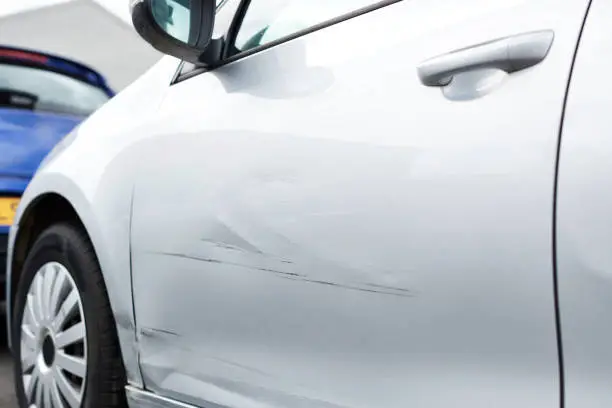 Arizona is considered an at-fault state when it comes to working out the details of insurance. This means the party responsible for the accident is generally required to pay for damages. If insurance isn’t enough to cover damages, the at-fault party can be sued to recover additional damages.
Arizona is considered an at-fault state when it comes to working out the details of insurance. This means the party responsible for the accident is generally required to pay for damages. If insurance isn’t enough to cover damages, the at-fault party can be sued to recover additional damages.
A.R.S. Sections 28-4135 and 28-4009 require every motor vehicle operating on public roadways to have insurance with a minimum of $25,000 per person in the case of injury or death and $15,000 in the event of injury or destruction of property.
Additionally, Arizona laws also set timeframes for insurance claims. Insurance companies must acknowledge the receipt of a claim within 10 days, investigate the claim within 30 days, and pay an approved claim within 30 days.
Contact a Qualified Attorney
The severity of fender benders can quickly spiral if false claims are made or the other party is severely injured. This is why it’s best to contact a qualified attorney, like our team at TheZlawyer. We can help you navigate what to do after a minor car accident in Arizona.

Does a Cop Have to Tell You Why They Pulled You Over in Arizona?
 Were you recently pulled over in Arizona? Did the officer tell you why? Law enforcement officials don’t need to clearly state the rationale behind pulling you over, leaving you wondering about the legality of your stop. Let’s discuss when a cop has to tell you why they pulled you over in Arizona, your rights, and what you should do when being pulled over.
Were you recently pulled over in Arizona? Did the officer tell you why? Law enforcement officials don’t need to clearly state the rationale behind pulling you over, leaving you wondering about the legality of your stop. Let’s discuss when a cop has to tell you why they pulled you over in Arizona, your rights, and what you should do when being pulled over.
Does a Cop Have to Tell You Why They Pulled You Over in Arizona?
No, a cop does not have to tell you why they pulled you over, but law enforcement officials cannot pull you over without probable cause. If you take your violation or ticket to court, the cop will be required to share the rationale behind pulling you over. Being stopped unlawfully does happen, which is why many Arizona citizens record police interactions when they can.
Most officers will explain why you are being pulled over to facilitate a smooth process. However, some police officers will ask rhetorical questions. For example, a common question is, “Do you know how fast you were going?” It’s important to respond carefully, but honestly in these situations.
What Are Your Rights When Being Pulled Over?
You have rights when being pulled over in Arizona. First, you have the right to remain silent. You don’t need to answer probing questions, such as where you are traveling to or from. Next, you have the right to refuse a search. Officers can bypass this right if there is clear evidence that you have committed a crime, such as open alcohol in the passenger seat.
You also have the right to a lawyer. If you are detained, you do not need to answer any questions without a lawyer present. Be sure you express your wishes upfront. In addition, you do have the right to remain in your vehicle. If the officer does ask you to step out, it’s best to comply to avoid escalating the situation.
What Should You Do When Being Pulled Over in Arizona?
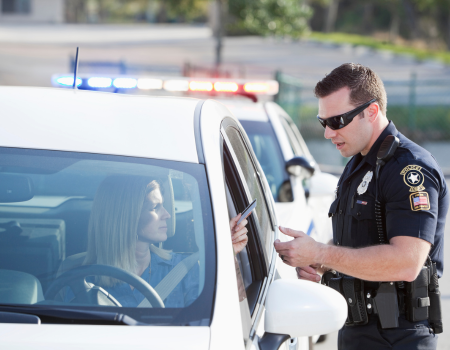 When you get pulled over by Arizona law enforcement, remain calm and stop your car when it is safe to do so. Be sure you aren’t obstructing traffic and turn on your hazards. Next, roll down your window and keep your hands where the police officer can see them, such as on the steering wheel. Your passengers should abide by the same rules.
When you get pulled over by Arizona law enforcement, remain calm and stop your car when it is safe to do so. Be sure you aren’t obstructing traffic and turn on your hazards. Next, roll down your window and keep your hands where the police officer can see them, such as on the steering wheel. Your passengers should abide by the same rules.
Police officers are trained to respond within a moment’s notice, which is why it’s important to avoid any sudden movements. Provide the officer with any requested documents, such as your driver’s license, registration, and proof of insurance. Sometimes, the officer will explain why you are being pulled over. It doesn’t hurt to ask, but don’t be confrontational.
Write down the officer’s badge number if you can and gather witness contact information if you believe you are being unlawfully pulled over. Then, contact a qualified attorney that can walk you through the next steps and legal proceedings.
Summary
Are you wondering why you were pulled over and ticketed? It can be difficult to pinpoint the rationale behind your ticket or arrest without going to court. In these situations, contact our team at The Law Office of Zayed Al-Sayyed right away.

What Happens if You Hit a Pedestrian Jaywalking in Arizona?
 Each year, hundreds of pedestrians in Arizona suffer serious injuries from traffic collisions. While negligent drivers are part of the problem, sometimes, the pedestrian is partially at fault. Incorrect use of roadways, including jaywalking, can have serious repercussions, including injury, lawsuits, and monetary penalties.
Each year, hundreds of pedestrians in Arizona suffer serious injuries from traffic collisions. While negligent drivers are part of the problem, sometimes, the pedestrian is partially at fault. Incorrect use of roadways, including jaywalking, can have serious repercussions, including injury, lawsuits, and monetary penalties.
In this article, we’ll explain the basics of jaywalking, how to determine the at-fault party, and how comparative negligence factors into damage awards.
Understanding Jaywalking Laws in Arizona
Jaywalking is not condoned in Arizona, but it’s also not illegal. Jaywalking is considered crossing an intersection at any area outside of the designated walkway or at the incorrect time. Arizona Revised Statute 28-793 is the section of Arizona law that contains jaywalking provisions.
If a pedestrian does elect to jaywalk, they must stay on the curb until it’s safe to cross. There can be no vehicles in sight before crossing the roadway. This means you shouldn’t try and run across the road when a car is coming. Although jaywalking is not specifically illegal in Arizona, pedestrians can get in trouble if it places them or motorists in unnecessary danger.
One of the only situations where jaywalking is expressly permitted in Arizona is between adjacent intersections with control signals. Cities in Arizona can impose different regulations. This makes it important to consult with an attorney well-versed in all Arizona regulations if you are in an accident involving jaywalking.
Who Is At Fault?
 If the city does not permit jaywalking and the pedestrian does so anyway, the pedestrian could be liable for the collision. Breaking the law and causing an accident can lead to automatic liability under the rules of negligence. However, if the pedestrian had the right to jaywalk, the motorist might be partially at fault.
If the city does not permit jaywalking and the pedestrian does so anyway, the pedestrian could be liable for the collision. Breaking the law and causing an accident can lead to automatic liability under the rules of negligence. However, if the pedestrian had the right to jaywalk, the motorist might be partially at fault.
In situations where jaywalking is permitted, the pedestrian must do so safely. Stepping into oncoming traffic would generate negligence on the pedestrian’s part. However, if a driver could have reasonably avoided the crash, they can be found at fault. A driver can’t just barrel through pedestrians even though they are jaywalking. Drivers still have a responsibility to prevent collisions.
How Does Comparative Negligence Factor In?
Sometimes, an accident isn’t all the fault of one party. This is where comparative negligence comes into play. In Arizona, even if one party is 99% at fault, they can recover compensation under pure comparative negligence laws.
For example, if a pedestrian is jaywalking, but a motorist isn’t paying attention, both parties can be partially at fault. The percentage that the pedestrian or motorist is found at fault determines the amount that they can claim in damages.
Summary
Arizona jaywalking laws can quickly become complex when accidents occur, especially if both parties are partially at fault. This makes it important to contact a qualified personal injury attorney that can help you maximize your damages in the event comparative negligence comes into effect.
Our team at The Z Lawyer has the experience and expertise you need in a jaywalking lawsuit. Reach out today to schedule your free consultation.

How Many Drinks is 0.08 Alcohol Level?
 All states, including Arizona, have established the legal alcohol limit at a BAC of 0.08 in an attempt to prevent injuries, death, and property damage stemming from impaired driving. Unless you keep a breathalyzer on you at all times, it can be difficult to know when you’ve exceeded the legal limit.
All states, including Arizona, have established the legal alcohol limit at a BAC of 0.08 in an attempt to prevent injuries, death, and property damage stemming from impaired driving. Unless you keep a breathalyzer on you at all times, it can be difficult to know when you’ve exceeded the legal limit.
Getting pulled over for impaired driving, or worse, causing an accident, can leave you in a tough position with lawsuits and jail time on the table. This makes it important to understand the basics of BAC, its importance, how drinks influence BAC, and potential side effects.
If you do find yourself on the hook for impaired driving, it’s important that you reach out to a qualified attorney right away to minimize financial and behavioral penalties.
What is BAC?
Blood alcohol concentration, known as BAC, is a measurement of how much alcohol is in your bloodstream. BAC is calculated as a ratio of ethyl alcohol per 100 mm of blood. This means if you have a BAC of 0.05, you have 0.05 grams of alcohol for every 100 mm of blood.
 Why is BAC Important?
Why is BAC Important?
BAC is important to determine when you shouldn’t operate a vehicle and it’s time to call a taxi or Uber. The general rule of thumb is that it takes your body one hour to process a standard alcoholic drink. If you consume more than one drink in an hour, you can have high concentrations of alcohol in your system, which makes it more difficult for your liver to metabolize.
Alcoholic drinks impact each person differently and can depend on various factors, like weight, size, height, health history, and more. However, assessing your BAC eliminates the need to evaluate these subjective factors and gives you concrete information on your level of impairment.
How Do Drinks Influence BAC?
The types of drinks you consume can impact your BAC differently. For example, a seltzer or beer might not have as profound of an impact compared to a shot of hard liquor. For each drink you consume, you can expect your BAC to go up around 0.02, meaning you reach the legal BAC limit after four drinks. If you have a smaller frame or process alcohol slower, your drink count can be further limited.
What are the Side Effects of BAC?
The higher your BAC, the more side-effects you can expect. Common physical effects of BAC include delayed muscle coordination, altered judgment, lower self-control, less reasoning, and memory loss. These physical side effects can come into play well before you reach the legal BAC of 0.08, making it important to understand how your body reacts to alcohol.
Summary
Analyzing your impairment levels can be subjective, which is why BAC is widely used as a tool of enforcement. If you do find yourself in trouble in Arizona for exceeding the legal BAC, it’s essential that you contact an attorney right away.
Impaired driving in Arizona can be a serious crime, which is why you need the right team advocating on your behalf. Reach out to our team at The Law Office of Zayed Al-Sayyed today to set up your consultation.

Arizona Car Accident Laws
 Vehicle accidents are a common occurrence in Phoenix, Arizona, with recent studies showing over 40,000 accidents in 2021 alone. When it comes to handling the aftermath of a car accident in Arizona, you want to be aware of the main laws in effect.
Vehicle accidents are a common occurrence in Phoenix, Arizona, with recent studies showing over 40,000 accidents in 2021 alone. When it comes to handling the aftermath of a car accident in Arizona, you want to be aware of the main laws in effect.
If you’re interested in learning more about accident reporting, comparative negligence, and the statute of limitations surrounding Arizona car accidents, this blog is for you.
Do You Need to Report the Accident?
Arizona laws don’t require individuals to personally report the incident. However, if any of the following occur, law enforcement officials are required to generate a written report:
- Injury
- Fatality
- Property damage that exceeds $1,000
- Citations issued to any involved parties
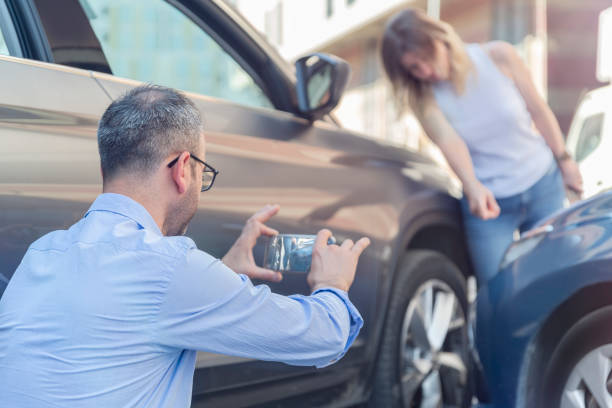 Even if you don’t plan on personally reporting the incident, you must remain on the scene until all necessary information is exchanged. Fleeing the scene might upgrade your small fender-bender to a hit and run misdemeanor or felony.
Even if you don’t plan on personally reporting the incident, you must remain on the scene until all necessary information is exchanged. Fleeing the scene might upgrade your small fender-bender to a hit and run misdemeanor or felony.
A hit and run misdemeanor occurs when you cause damage to another vehicle and fail to stop, while failing to stop after an accident that causes physical injury is classified as a hit and run felony.
How Does Comparative Negligence Work?
Often, car accidents aren’t the fault of just one party, which is why Arizona laws follow comparative negligence. Individuals that share responsibility for car accidents can recover compensation for their losses, even if they are the majority at fault. Comparative negligence percentages are determined by the court after reviewing all of the facts surrounding the accident.
This means if a driver is 95% at fault, they can still receive compensation. However, any compensation they receive will be reduced by their negligence percentage. Let’s say that you sustain $5,000 worth of vehicle damage and you are found 25% at fault. You may only receive up to 75% of the damage amount or $3,750.
What is the Statute of Limitations?
One of the most important car accident laws that Arizona enforces is a statute of limitations. Those involved in a car accident have two years from the date of the accident to report the incident to insurance carriers. Any claims after this deadline will most likely be denied and you will be responsible for repairs.
Additionally, if you are bringing a personal injury lawsuit against another involved party, you need to have your case filed by the two-year deadline. If you miss your window, you will most likely lose your ability to recover compensation for your losses. This is why it’s important that you contact a qualified Phoenix attorney as soon as possible.
Finding the Right Attorney
Whether you were the cause of a car accident or a victim, it’s important that you partner with the right attorney. Our legal team at The Law Office of Zayed Al-Sayyed understands that mistakes happen.
We want to work alongside you to find the most favorable outcome for your situation, regardless of which side of the fence you are on. Contact our team to schedule a consultation today.
